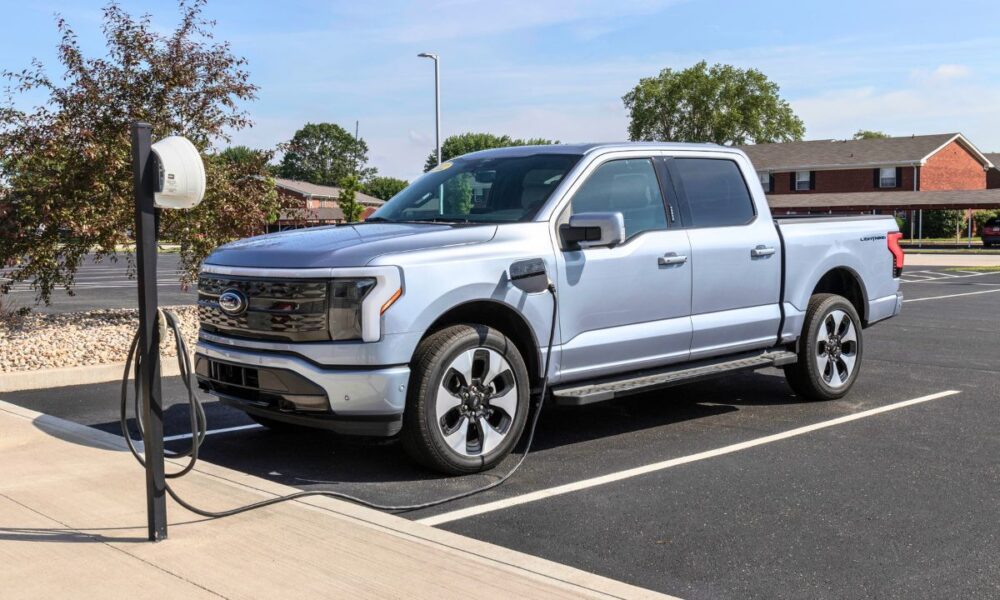Amid growing competition in the EV market, Ford is reportedly considering ending production of its all-electric F-150 Lightning.
The Wall Street Journal reported that the American automotive giant has been discussing the possibility of scrapping the electric pickup truck. A source with knowledge of Ford’s product strategy later confirmed to CNBC that the company has been assessing the future of the F-150 Lightning amid a challenging market environment.
“What I can say is that F-150 Lightning is the best-selling electric pickup truck in the U.S. — despite new competition from CyberTruck, Chevy, GMC, Hummer and Rivian — and delivered record sales in Q3. Right now, we’re focused on producing F-150 ICE [internal combustion engine] and Hybrid as we recover from the fire at Novelis,” a Ford spokesman told CNBC.
Production for the Lightning has been paused after a fire broke out at an aluminum plant owned by Novelis, a supplier to the electric pickup truck. Despite remaining offline, Ford President Kumar Galhotra said Lightning production could restart whenever the company decided. However, he also stated that the automotive company was currently focused on gas-powered models and did not provide a date for when Lightning production would resume.
Ford once called the F-150 Lightning as important to the company as the original Model T. Despite all the hype, the vehicle never sold as many as forecasted, with more than 200,000 nonbinding reservations for the pickup never converting to sales.
The Lightning sold 24,577 units during the first 10 months of 2025, a number roughly comparable to the same period last year. Since its introduction to the United States market in 2022, the company has sold fewer than 100,000 units.
Ford’s overall EV production remains challenging, with operations for its electric vehicles, including the Lightning, having lost the company billions of dollars in recent years. To make matters worse, the U.S. domestic electric vehicle market took a hit following the federal government’s cessation this year of the consumer credits of up to $7,500 for the purchase of an EV.


